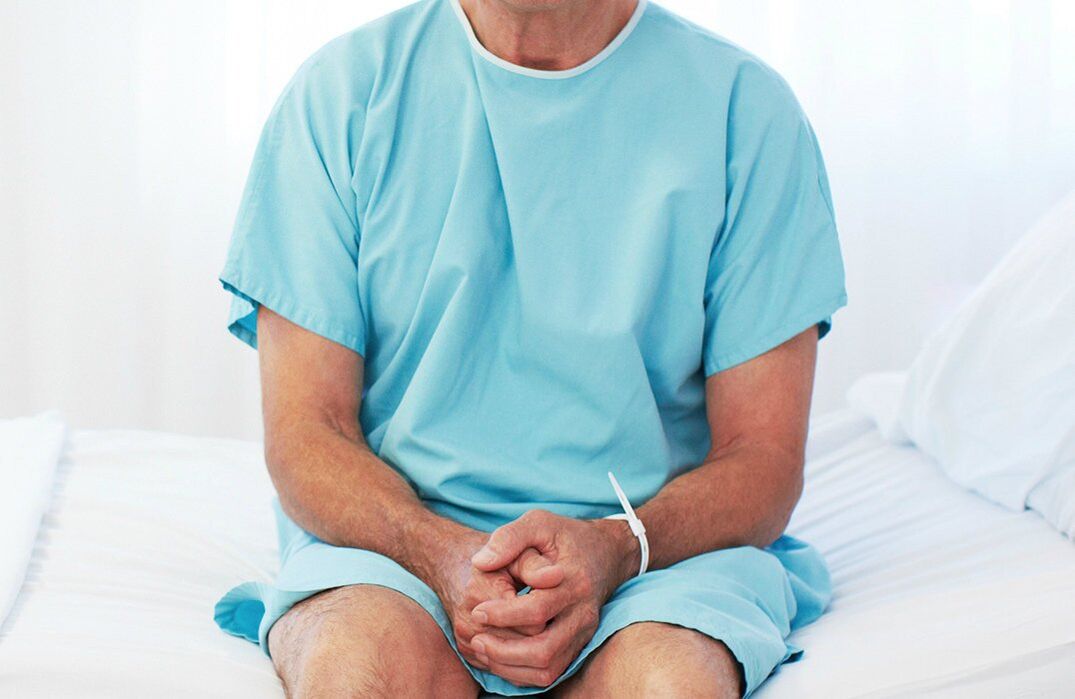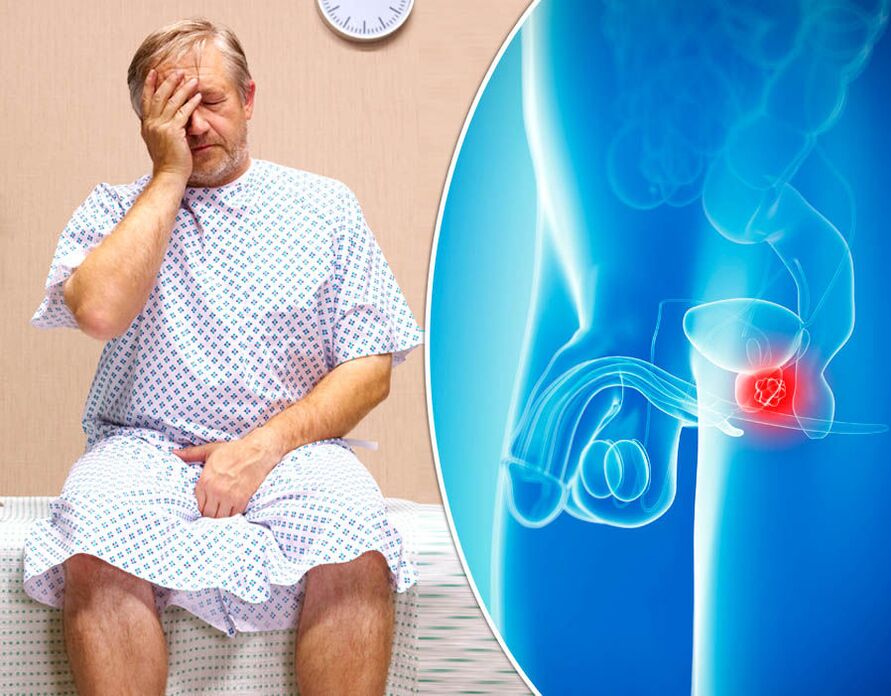The prostate gland (prostate) is an important part of the male reproductive system: it produces secrets that provide motor activity and sperm viability. This secret contains enzymes, immunoglobulin, citric acid, vitamins, zinc ions. In violation of the activity of the prostate gland, the sexual function of the male body decreases. The most common prostate disease is inflammation - prostatitis. He is usually exposed to him at the age of 20-50. The older man, the higher the risk of the incident. Prostatitis continues in acute or chronic form, often difficult to diagnose and can cause persistent prostate dysfunction. The worst consequences of prostatitis are infertility and prostate cancer.

About half of the capable men are sick worldwide for chronic prostatitis. Modern medicine is very active in the treatment of prostatitis. Prostatitis, in fact, is successfully treated - it is only important to diagnose it as early as possible. Once the early signs of prostatitis appear, they should contact the urologist. In the early stages, outpatient treatment is possible, in cases of advanced patients to be hospitalized. The course of treatment with both versions is one to two weeks, after which the patient should take preventive measures to prevent new inflammation of the prostate gland. Digging the frequency of chronic prostatitis - over 50%
Type of prostatitis
Depending on the cause and clinical picture of the disease, the following types of prostatitis are distinguished:
Acute prostatitis- Seriously inflammation of the prostate gland, which is caused by a bacterial infection of the tissue. Many bacteria are part of the normal microflora of the body and are always present in the intestines and skin. However, when the prostate gland enters the tissue-is usually due to non-compliance with basic hygiene rules and other causes-they can cause the development of acute inflammation. Acute prostatitis is extremely rare. Treatment should be performed in the hospital.
Chronic bacterial prostatitis- is a third of all cases of inflammation of the prostate gland. This form of prostatitis is dangerous in the painful signs can be spontaneous even without treatment. But this does not mean healing - after a while, the disadvantages occur, which continues every time it hurts. If you do not do anything repeatedly, there is a risk of developing purulent focus, stone deposition in the prostate, bladder inflammation and severe complications, up to cancer.
Chronic prostatitis/chronic pelvic with chronic pelvic. It is difficult to diagnose the form of prostatitis is characterized by persistent pain in the pelvic area, which lasts for more than three months. Along the way, neurological disorders and psycho -anemotional disorders can be observed. Diagnosis is made by exceptions, the analysis may not show signs of inflammation.
Chronic prostatitis without symptoms. It continues without symptoms and can be lowered according to urine analysis, which shows high concentrations of leukocytes and bacteria.
Chronic granulomatous prostatitis. Usually it is a side effect of other drug treatment or prostate gland irradiation. During this disease, the prostate gland tissue is gradually replaced by connective tissue, and the iron does not function.

Symptoms of disease
In men suffering from various forms of prostatitis, common symptoms can be distinguished. These include: difficulty in urinating due to compression of the blade with the inflamed prostate gland. When urinating, pain and burning can be observed. Violation of erection mechanism, weakness of orgasm. Excessive ejaculation. Reduces potential. Mental depression, anxiety. For prostatitis patients, the psychological atmosphere for recovery is very important. Stress also weakens the body and complicates treatment, leading to greater oppression. It is difficult for patients to get out of this closed circle, so sometimes antidepressants are also prescribed with prostatitis.
The cause of prostatitis
The causes of prostatitis disease are quite diverse, but are mainly associated with the neglect of a man to his health: sexual infection; violations of blood circulation in the pelvic organs-for example, due to an inactive lifestyle; Prolonged sexual edge, interferes with sexual relations or extending sexual relations; impaired immunity; Frequent hypothermia, which is a feature of extreme sports lovers; pressure; hormone imbalance; vitamin deficiency and trace elements; Do not comply with personal hygiene rules.
Complication
Prostatitis gives men serious difficulties: urinary problems, decreased libido, affected erection function. If the patient does not receive adequate treatment in time, he or she is able to develop infertility with a probability of 40%, as prostate iron can no longer develop secrets in normal quantities and quality required. Self -prostatitis is unacceptable, as it can cause deterioration in the patient's condition and the occurrence of the disease. For example, improper antibiotics affect the intestinal microflora and significantly reduce immunity, while not solving problems with the prostate gland. Other medicines only cover the disease and the symptoms, worsen the condition. Therefore, prostatitis must be diagnosed and treated with an experienced specialist.

Prevention
Steps -Prevention Steps to Prevent Prostatitis include: Careful maintenance of personal hygiene; Sexual life ordered regularly; healthy physical activity; diet with adequate protein content, vitamins and trace elements; increase general immunity; abstinence in alcohol and smoking; timely treatment of infectious diseases; Reduces overall levels of daily stress. Due to many types of prostatitis and factors that develop, men should be careful about their well-being and at least twice a year visiting a urologist. This is very important after forty years.



















